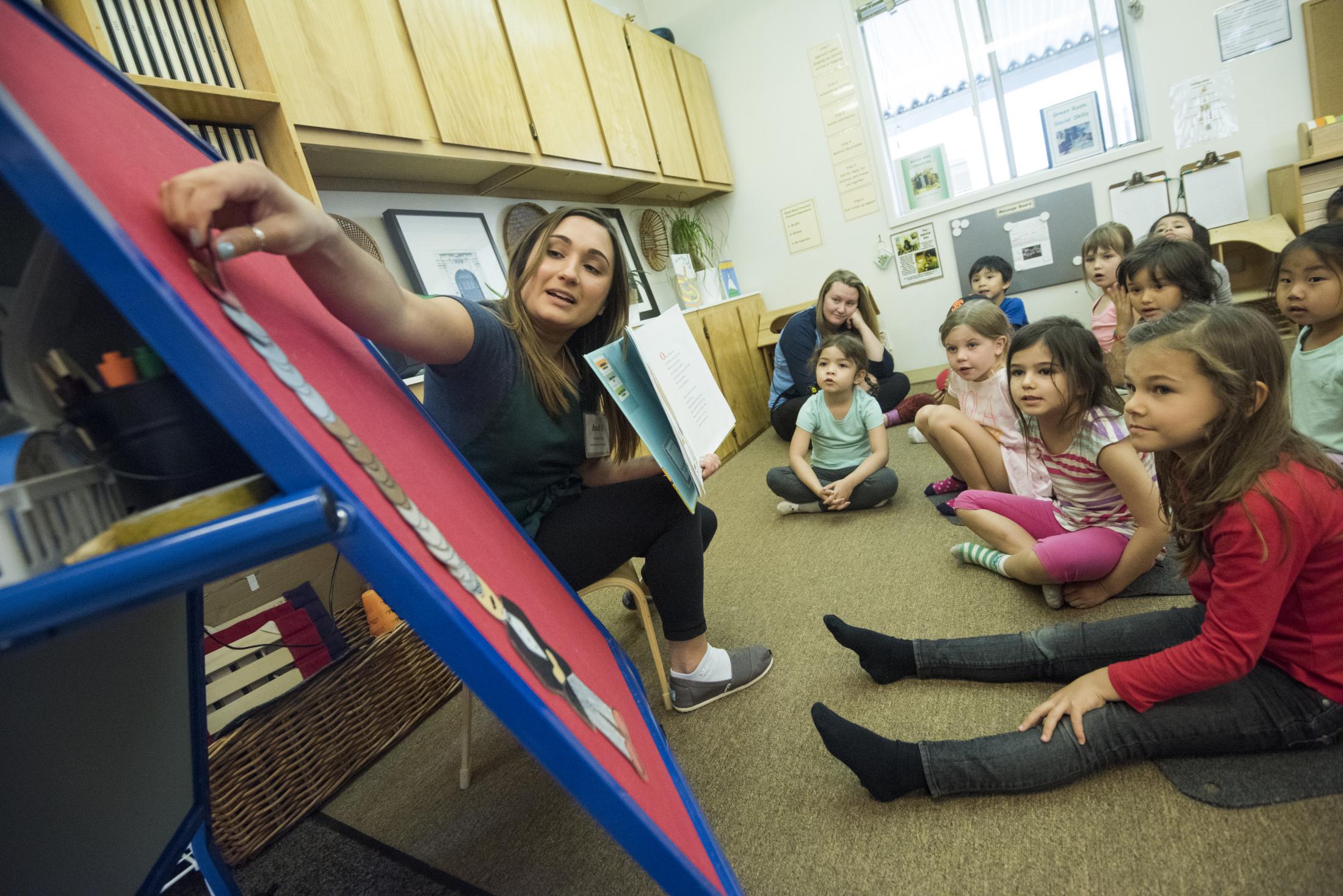Daily Routines
Classroom daily routines are developed by teaching teams with respect to cohort needs and in alignment with developmentally appropriate practice.
Core components include:
Arrival
Children arrive. Staff and student caregivers greet families and facilitate the transition into program.
Indoor Play, Exploration, and Discovery
Children make choices in exploration and play. Staff help children achieve what they set out to do, and
children are provided time to solve problems they encounter.
Snack/Meal Time
Student caregivers and their care group eat snack/meal and engage in meaningful conversation.
Outdoor Play, Exploration, and Discovery
Children make choices in exploration and play. Staff help children achieve what they set out to do, and are provided time to solve problems they encounter.
Group Time
Staff and children gather together for songs, fingerplays, stories, and other activities.
Departure
Children are dismissed as parents/family caregivers arrive. Staff and student caregivers check-in with
parents/family caregivers and share information about the day’s events.




Classrooms with older children may also incorporate the following routines:
Class Meetings
Teaching staff and children gather together to review new classroom activities, learn social skills, and
engage in large-group discussion/decision making.
Table Activities
Children participate in activities designed to strengthen hands and develop fine-motor control.
Plan-Do-Review
Plan-do-review is the centerpiece of the High/Scope curriculum model. It includes all the elements of
active learning—materials, manipulation, choice, language from children, and adult support.
Small-group Explorations
Children participate in teacher-initiated experiences designed to extend classroom explorations,
engage children in collaborative learning, and promote the development of new skills.
Additionally, full-day programming includes:
Lunch
Staff and children eat lunch and engage in meaningful conversation.
Rest and Relaxation
Children are encouraged to rest (nap) or relax to aid the important physical and mental development that happens in early childhood.

